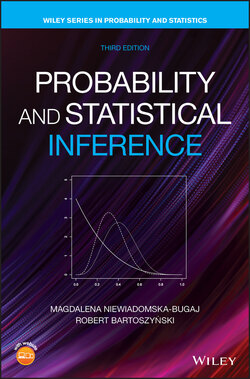Читать книгу Probability and Statistical Inference - Robert Bartoszynski - Страница 45
2.1 Introduction
ОглавлениеThe concept of probability has been an object of debate among philosophers, logicians, mathematicians, statisticians, physicists, and psychologists for the last couple of centuries, and this debate is not likely to be over in the foreseeable future. As advocated by Bertrand Russell in his essay on skepticism, when experts disagree, the layman would do best by refraining from forming a strong opinion. Accordingly, we will not enter into the discussion about the nature of probability; rather, we will start from the issues and principles that are commonly agreed upon.
Probability is a number associated with an event that is intended to represent its “likelihood,” “chance of occurring,” “degree of certainty,” and so on. Probabilities can be obtained in several ways, the most common being (1) the frequency (or objective) interpretation, (2) the classical (sometimes called logical) interpretation, and (3) the subjective or personal interpretation of probability.
